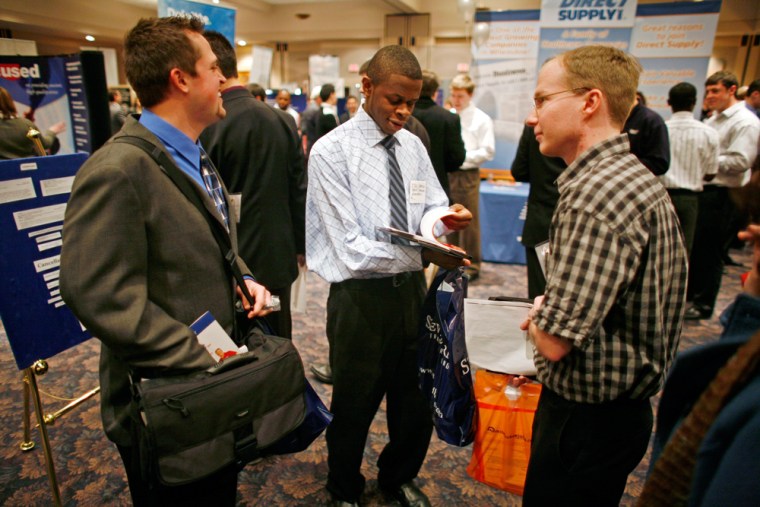When Blake Mycoskie decided to donate a pair of shoes for every pair his company sold, he knew the margins would be tight. The more his business grew, the more it gave away — and the more it gave away, the faster the business grew. TOMS Shoes, the company he launched in 2006 as a hybrid between a for- and a non-profit business, has since distributed more than 60,000 pairs of shoes to children in remote, poverty-stricken regions of Argentina and South Africa, while getting his shoes into big-name stores across the United States. All this with just a handful of employees.
To balance his social goals with rising labor costs, Mycoskie turned to a group of highly motivated laborers willing to work hard for next to nothing and have fun doing it — college interns.
"It was a natural fit," Mycoskie says. "College students were really drawn to what we were doing. At that age there's not a whole lot you can do to make a real difference in the world, and that's what we could offer them." In return, Mycoskie was able to double his staff without getting buried in payroll costs. Today, nearly half of his 22 full-time employees are former interns.
In recent years, fast-growing businesses like TOMS have begun tapping into a student internship market once dominated by big corporations. But where Goldman Sachs, Coca-Cola, and Disney attract the best students with the promise of a prestigious, eye-catching entry on a resume, smaller companies are now realizing they can counter with an offer of a real-world, hands-on experience running a business. According to recruiters and employment experts, that's proving to be a highly competitive offer.
Yet, beyond payroll savings — last year, the average wage for college interns nationwide was just $15.99 an hour — an effective internship program can pay off for growing companies in a number of unexpected ways, from getting an edge in the battle for talent to providing valuable lessons in managing a bigger staff.
"Most small-business owners have tended to think about interns as some neighbor's kid who needs something to do for the summer," says C. Mason Gates, the founder of Richmond, Va.-based InternDirect and president of internships.com — services that help match employers with interns. "They're only now starting to recognize the real opportunities out there to build their businesses."
In a survey of 276 U.S. employers by the National Association of Colleges and Employers — including about a quarter with fewer than 500 employees — nearly 90 percent said they now have an internship program in place. As many as 62 percent of college hires last year had held internships, employers said. Overall, employers reported that 30.7 percent of their new college hires came from an internship program.
"For an employer, it's like having an extended interview with a job candidate," says Camille Luckenbaugh, the group's research director. Still, the process is a two-way street, she adds. While employers are able to screen interns to fill full-time jobs down the road, interns can equally suss out an employer. That can be mutually beneficial, she says, since it reduces the risk of bringing someone onboard who either doesn't fit in or who has false expectations about the job.
"When a student has a good internship experience, it can build loyalty to an employer," Luckenbaugh says. "Screening well and finding students who are well matched to their jobs can help out with retention later on."
Still, many business owners don't have the time or money to create a well-managed internship program. That's where services like New York-based InternsForYou come in.
Launched last year, InternsForYou is a mini recruiting firm focused entirely on finding the right interns for businesses with fewer than 20 employees. According to founder Irene de Gasparis, the intern market has become so hot in the past few years that much of her time is spent helping employers identify perks and benefits that stick out from the crowd.
"Interns make great hires, so you have a lot of competition out there," de Gasparis says. "You can't get away with just a college credit anymore."
To attract quality interns, she says, smaller companies have to find an edge unique to their business or industry. For instance, a fashion designer can offer deals on clothes, schools can offer free courses, or a travel agency can offer trips, she says.
For his part, Kit Rodgers, the vice president of business development at San Francisco-based Cryptography Research, is planning to display the company's working Enigma machine at college recruiting fairs this spring to wow math and science students. The company, which designs specialized cryptography hardware and has a staff of about 50 employees, was launched in the mid 1990s. This summer will be the first time in 12 years they've hired interns.
"One of the biggest limits to growth for us right now is finding good people," Rodgers says. "It's tough to cut through the noise out there, even if you're only looking for one or two new hires. It feels like the right time." He called the move an added boost to the company's long-term recruiting strategy.
Yet as much as good interns can be transformed from college students into valuable working professionals, a strong internship program can itself transform a business, de Gasparis says.
"By deciding where an intern can be put to the best use, an employer is forced to analyze their business very closely and find new ways of streamlining operations," de Gasparis says. "In that way, it can help them be more efficient and really improve their business, rather than merely save on labor costs."
Thanks to its interns, TOMS Shoes is planning to ramp up its shoe donation trips from once or twice a year to once a month, Mycoskie says.
"As long as we can continue to provide a hands-on experience, the internship program will probably grow along with the business," Mycoskie says. "They've become an integral part of this company."
